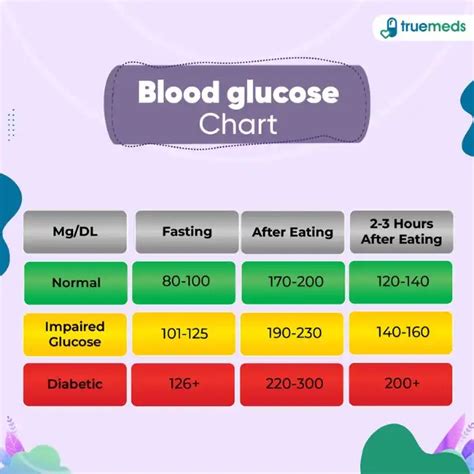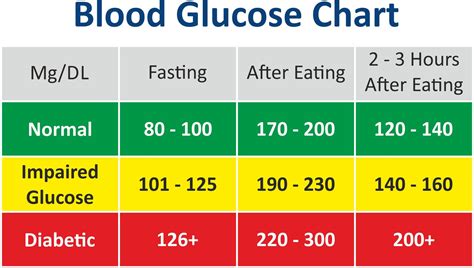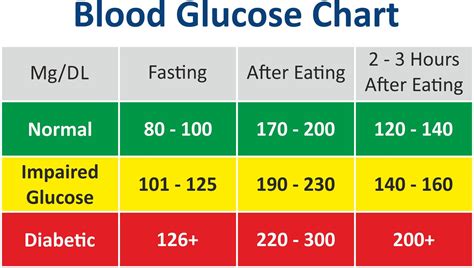Intro
Learn about normal blood sugar levels, glucose targets, and healthy range management to prevent diabetes and hypoglycemia, maintaining optimal blood glucose control.
Maintaining normal blood sugar levels is crucial for overall health and well-being. Blood sugar, also known as glucose, is the primary source of energy for the body's cells. When blood sugar levels are within a normal range, the body can function properly, and the risk of developing chronic diseases like diabetes, heart disease, and stroke is reduced. In this article, we will delve into the importance of normal blood sugar levels, the factors that affect them, and provide guidance on how to maintain a healthy blood sugar range.
The human body is designed to regulate blood sugar levels within a narrow range, typically between 70 and 110 milligrams per deciliter (mg/dL). When blood sugar levels exceed this range, it can lead to a range of health problems, including insulin resistance, type 2 diabetes, and cardiovascular disease. On the other hand, low blood sugar levels, also known as hypoglycemia, can cause symptoms like shakiness, dizziness, and confusion. Therefore, it is essential to understand the factors that influence blood sugar levels and take steps to maintain a healthy range.
Blood sugar levels are affected by a combination of factors, including diet, physical activity, stress, and certain medical conditions. For example, consuming high-carbohydrate foods or sugary drinks can cause a rapid spike in blood sugar levels, while regular exercise and a balanced diet can help regulate blood sugar levels. Additionally, certain medical conditions, such as polycystic ovary syndrome (PCOS) and Cushing's syndrome, can increase the risk of developing insulin resistance and high blood sugar levels. By understanding these factors and making informed lifestyle choices, individuals can take control of their blood sugar levels and reduce the risk of chronic diseases.
Understanding Normal Blood Sugar Levels

Normal blood sugar levels vary throughout the day, depending on factors like meal times, physical activity, and sleep patterns. In general, blood sugar levels are typically highest after eating and lowest after fasting or exercising. The American Diabetes Association (ADA) recommends the following blood sugar targets for individuals with diabetes: before meals, 80-130 mg/dL; after meals, less than 180 mg/dL; and at bedtime, 100-140 mg/dL. For individuals without diabetes, the normal blood sugar range is typically between 70 and 110 mg/dL.
Factors That Affect Blood Sugar Levels
Several factors can influence blood sugar levels, including: * Diet: Consuming high-carbohydrate foods, sugary drinks, and saturated fats can cause blood sugar levels to rise. * Physical activity: Regular exercise can help regulate blood sugar levels, while a sedentary lifestyle can increase the risk of insulin resistance. * Stress: Chronic stress can raise blood sugar levels and increase the risk of developing insulin resistance. * Sleep: Poor sleep quality and duration can disrupt blood sugar regulation and increase the risk of chronic diseases. * Medical conditions: Certain medical conditions, such as PCOS, Cushing's syndrome, and hypothyroidism, can increase the risk of developing insulin resistance and high blood sugar levels.Maintaining Normal Blood Sugar Levels

Maintaining normal blood sugar levels requires a combination of healthy lifestyle choices and, in some cases, medical treatment. Here are some tips to help regulate blood sugar levels:
- Eat a balanced diet: Focus on whole, unprocessed foods like vegetables, fruits, whole grains, lean proteins, and healthy fats.
- Stay hydrated: Drink plenty of water throughout the day to help regulate blood sugar levels.
- Exercise regularly: Aim for at least 150 minutes of moderate-intensity exercise or 75 minutes of vigorous-intensity exercise per week.
- Manage stress: Engage in stress-reducing activities like meditation, yoga, or deep breathing exercises.
- Get enough sleep: Aim for 7-9 hours of sleep per night to help regulate blood sugar levels.
Monitoring Blood Sugar Levels
Monitoring blood sugar levels is crucial for individuals with diabetes or those at risk of developing insulin resistance. Here are some ways to monitor blood sugar levels: * Fasting blood sugar test: Measures blood sugar levels after an overnight fast. * Oral glucose tolerance test: Measures blood sugar levels after consuming a sugary drink. * Continuous glucose monitoring: Uses a small device to track blood sugar levels throughout the day. * Blood sugar logs: Keeping a log of blood sugar readings can help individuals track their progress and make informed lifestyle choices.The Benefits of Normal Blood Sugar Levels

Maintaining normal blood sugar levels has numerous benefits, including:
- Reduced risk of chronic diseases: Normal blood sugar levels can reduce the risk of developing type 2 diabetes, heart disease, and stroke.
- Improved energy levels: Regulated blood sugar levels can provide a natural energy boost and reduce fatigue.
- Enhanced cognitive function: Normal blood sugar levels can improve concentration, memory, and mood.
- Healthy weight management: Maintaining normal blood sugar levels can help with weight loss and maintenance.
- Reduced risk of complications: Normal blood sugar levels can reduce the risk of complications like nerve damage, kidney disease, and vision problems.
Common Blood Sugar Mistakes
Here are some common mistakes that can disrupt blood sugar levels: * Skipping meals: Skipping meals can cause blood sugar levels to drop, leading to hypoglycemia. * Overeating: Consuming large portions can cause blood sugar levels to rise, leading to insulin resistance. * Not staying hydrated: Dehydration can disrupt blood sugar regulation and increase the risk of complications. * Not getting enough sleep: Poor sleep quality and duration can disrupt blood sugar regulation and increase the risk of chronic diseases. * Not monitoring blood sugar levels: Failing to monitor blood sugar levels can make it difficult to detect changes and make informed lifestyle choices.Conclusion and Next Steps

In conclusion, maintaining normal blood sugar levels is crucial for overall health and well-being. By understanding the factors that affect blood sugar levels and making informed lifestyle choices, individuals can reduce the risk of chronic diseases and improve their quality of life. If you are concerned about your blood sugar levels or have questions about how to maintain a healthy range, consult with a healthcare professional or registered dietitian for personalized guidance.
We invite you to share your thoughts and experiences with maintaining normal blood sugar levels in the comments below. Have you struggled with blood sugar regulation in the past? What strategies have you found helpful in maintaining a healthy range? Share your story and help others who may be struggling with similar challenges.
What is the normal blood sugar range for individuals without diabetes?
+The normal blood sugar range for individuals without diabetes is typically between 70 and 110 mg/dL.
How can I lower my blood sugar levels if they are too high?
+To lower blood sugar levels, focus on eating a balanced diet, staying hydrated, exercising regularly, and managing stress. Consult with a healthcare professional for personalized guidance.
What are the symptoms of hypoglycemia (low blood sugar)?
+Symptoms of hypoglycemia include shakiness, dizziness, confusion, sweating, and hunger. If you experience any of these symptoms, seek medical attention immediately.
Can I still develop insulin resistance if I have normal blood sugar levels?
+Yes, it is possible to develop insulin resistance even with normal blood sugar levels. Factors like genetics, obesity, and physical inactivity can increase the risk of insulin resistance, regardless of blood sugar levels.
How often should I monitor my blood sugar levels if I have diabetes?
+The frequency of blood sugar monitoring depends on individual factors, such as the type of diabetes, medication regimen, and lifestyle. Consult with a healthcare professional to determine the best monitoring schedule for your needs.
